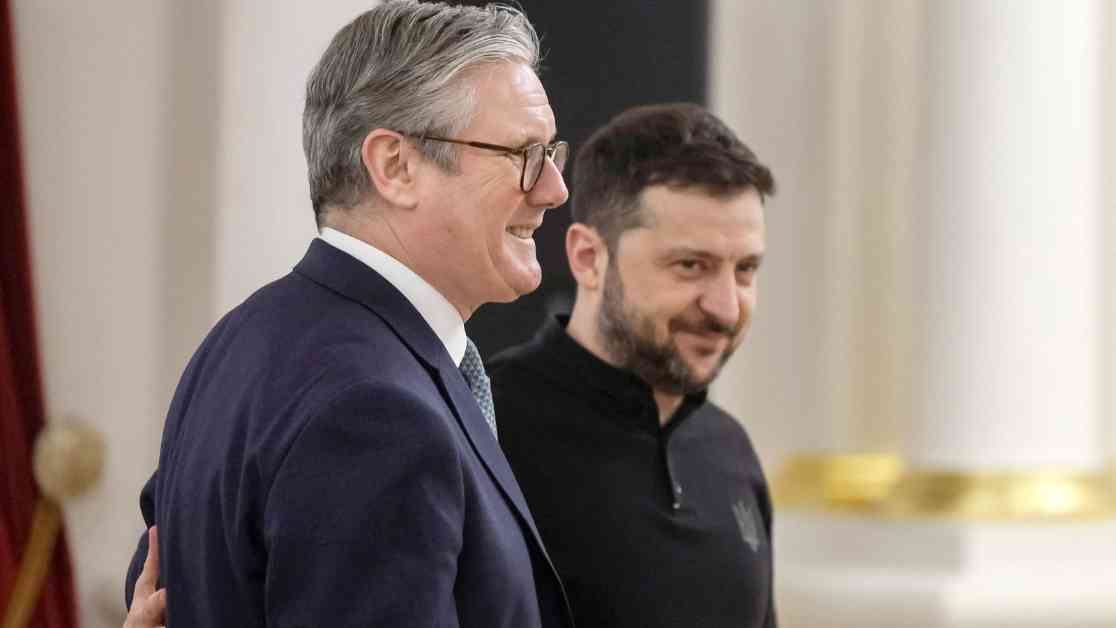Ukraine’s Irreversible Path to NATO: Sir Keir Starmer’s Message
In a recent phone call between UK opposition leader Sir Keir Starmer and Ukrainian President Volodymyr Zelenskyy, the former reaffirmed Ukraine’s commitment to an “irreversible path” to joining NATO. This conversation, occurring less than 24 hours after US President Donald Trump’s remarks about Ukraine’s NATO membership, marks a pivotal moment in the ongoing global dialogue regarding Ukraine’s security and future.
Expanding on the conversation, Sir Keir emphasized the UK’s unwavering support for Ukraine, promising “strong security guarantees, further lethal aid, and a sovereign future.” He underscored the principle that discussions about Ukraine must include direct involvement from Ukrainian representatives, aligning with broader international sentiments outlined during the Washington summit last year.
Challenging Trump’s Stance
The call between Sir Keir and President Zelenskyy holds particular significance in the context of recent shifts in global diplomacy, most notably seen in President Trump’s diverging stance on Ukraine’s geopolitical trajectory. Trump’s recent dialogue with Russian President Vladimir Putin raised eyebrows as he suggested territorial concessions and abandonment of NATO aspirations for Ukraine as preconditions for peace negotiations. This deviation from established Western alliances prompted a swift reaction from Sir Keir, marking a departure from his prior hesitancy in challenging Trump’s foreign policy decisions.
Implications for NATO and Security
The issue of Ukraine’s potential NATO membership lies at the heart of these discussions, with the alliance representing a crucial security guarantee for the Eastern European nation. Despite the challenges posed by Russia’s opposition to Ukraine’s NATO integration, Sir Keir’s firm stance signals a willingness to prioritize Ukraine’s security needs over potential diplomatic friction with the United States. This strategic move underscores the broader commitment of Western allies to uphold international security norms and support nations facing external threats.
Additionally, looming talks at the Munich Security Conference between US and Russian officials to address the conflict in Ukraine further underscore the complexities of the geopolitical landscape. While Trump’s statements on the negotiations have drawn criticism from both Russia hawks and Ukraine supporters, the UK’s assertive position in supporting Ukraine’s NATO aspirations sets a precedent for proactive engagement with regional security issues.
Expert voices, including former national security adviser John Bolton, caution against making excessive concessions to Moscow, highlighting the potential risks posed to American national security. Bolton’s remarks underscore the broader implications of diplomatic decisions in the context of global power dynamics and historical precedents, urging a balanced approach to negotiations that safeguards regional stability.
In conclusion, the recent dialogue between Sir Keir Starmer and President Zelenskyy represents a critical moment in shaping Ukraine’s geopolitical future and international security dynamics. By reaffirming Ukraine’s path to NATO membership and emphasizing the need for direct Ukrainian involvement in negotiations, the UK demonstrates a commitment to upholding collective security norms and supporting nations facing external threats. As discussions continue at the Munich Security Conference and beyond, the evolving dynamics of global diplomacy will play a pivotal role in shaping the trajectory of regional security and international relations.













